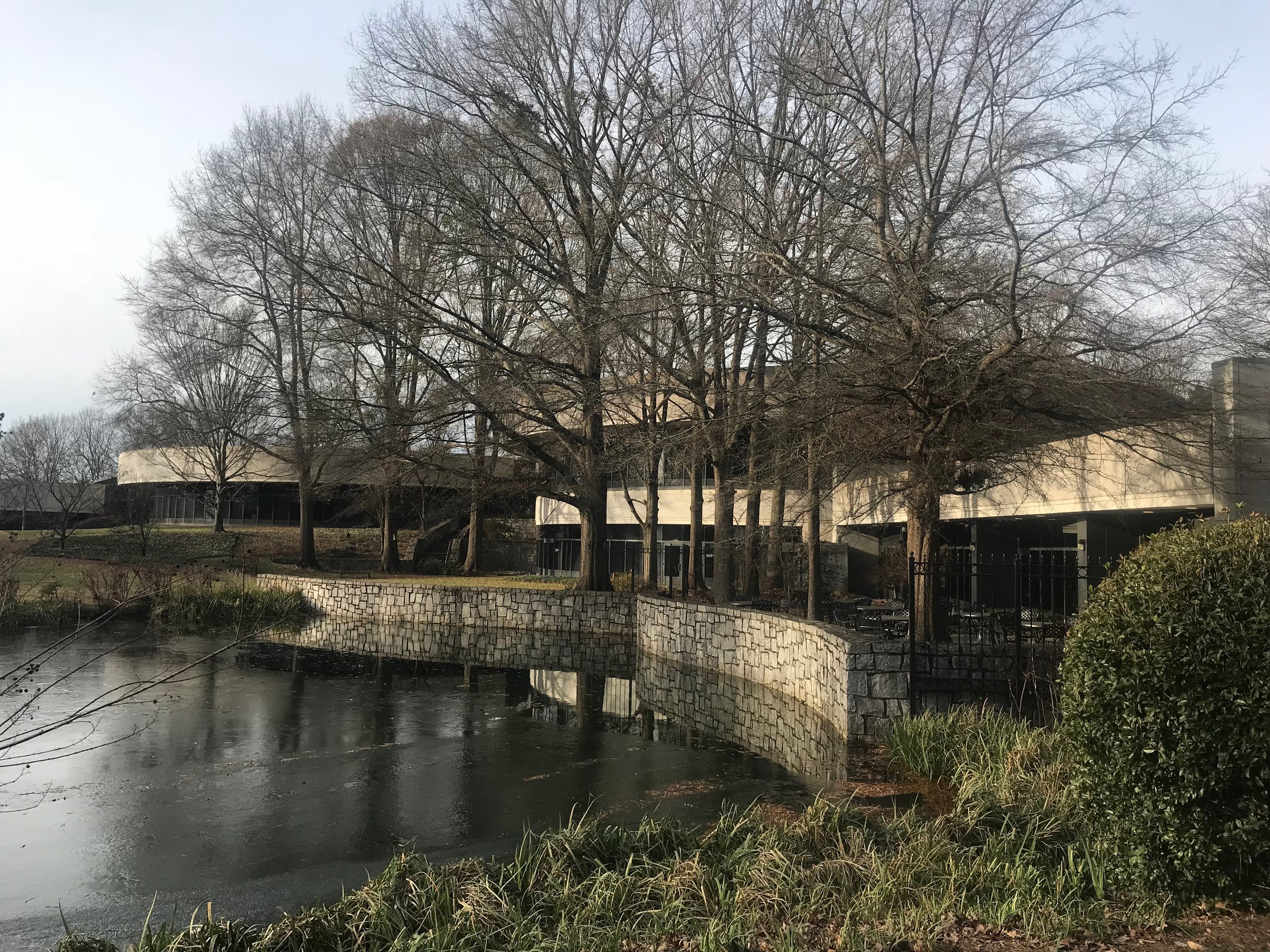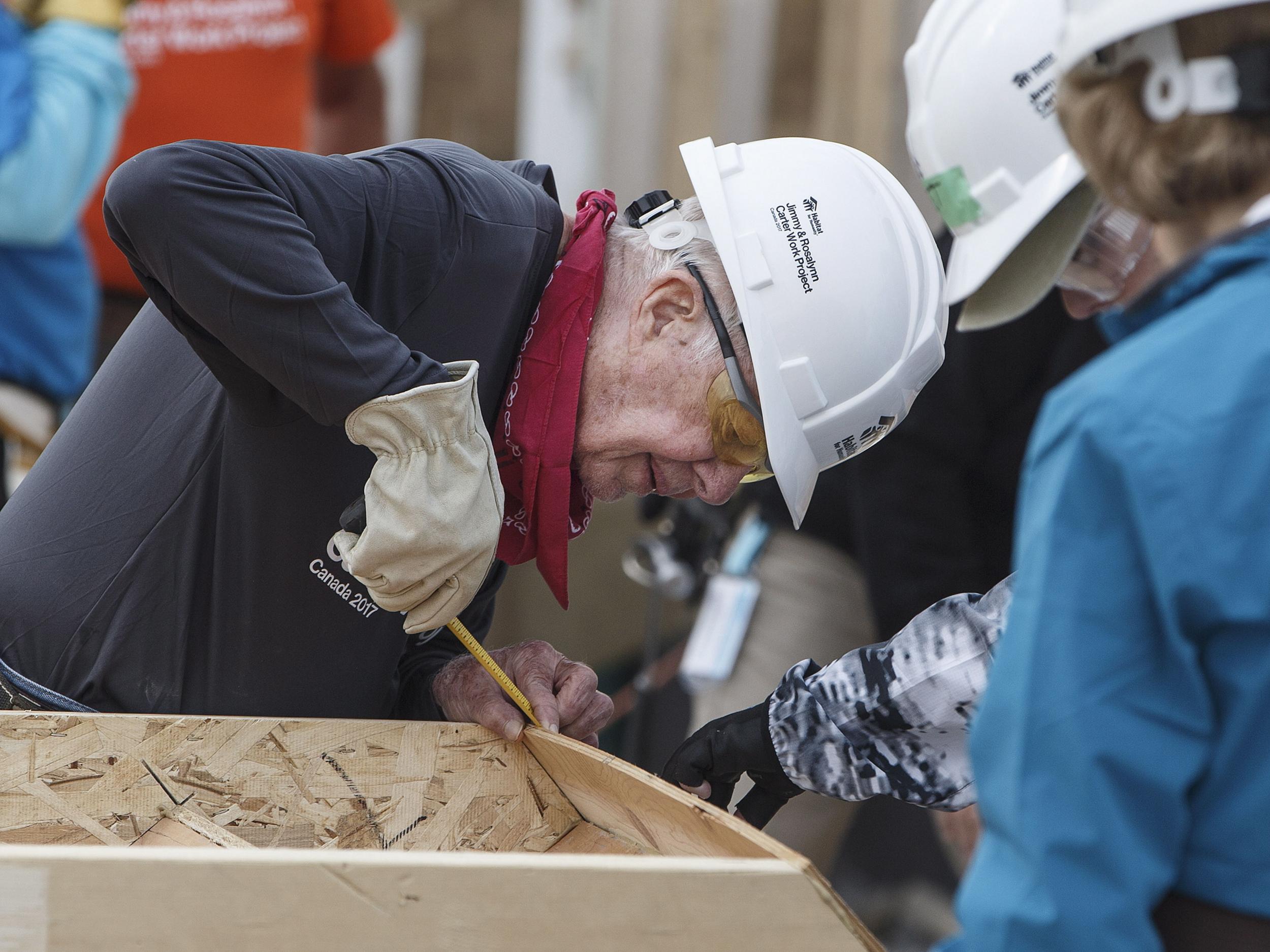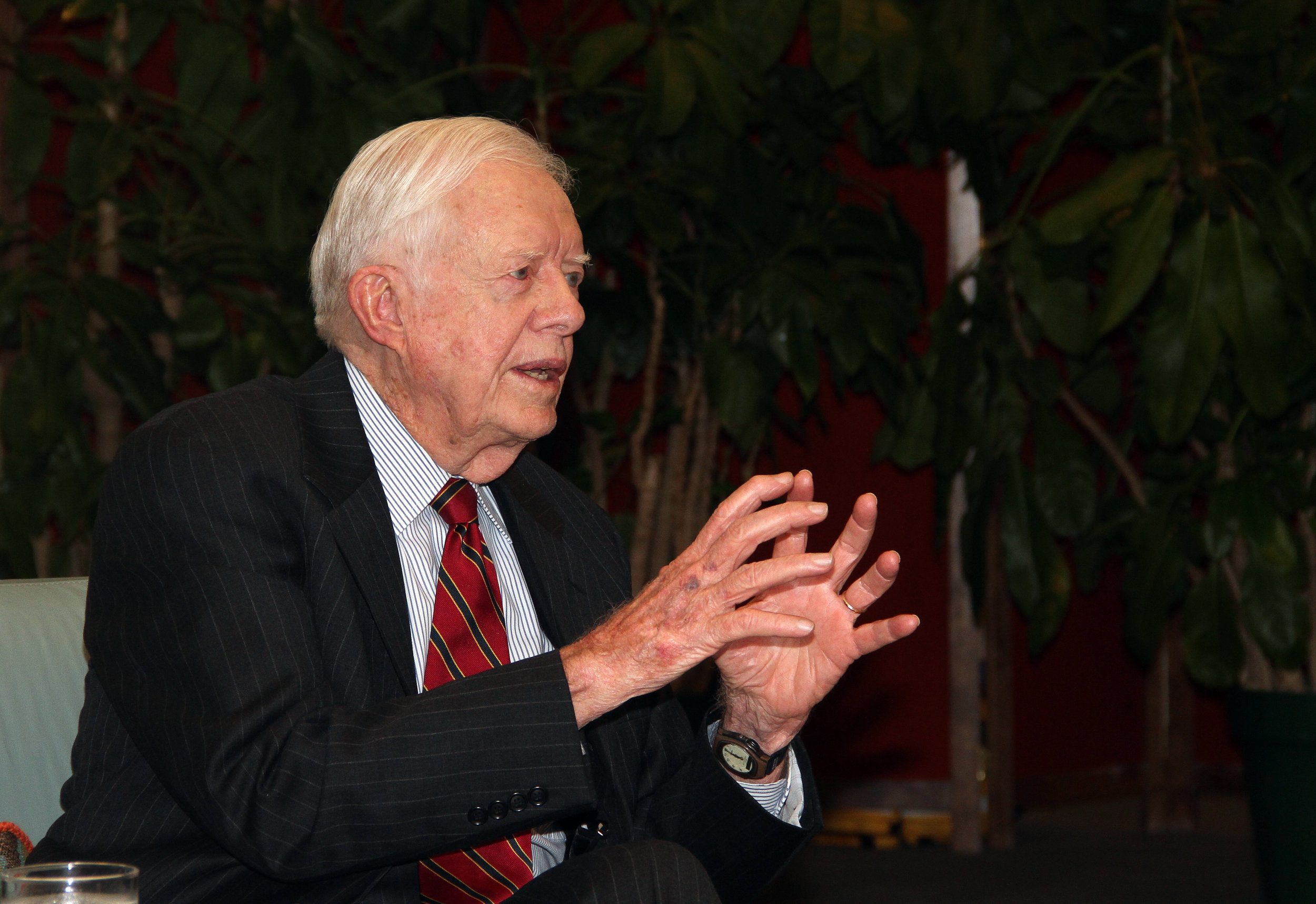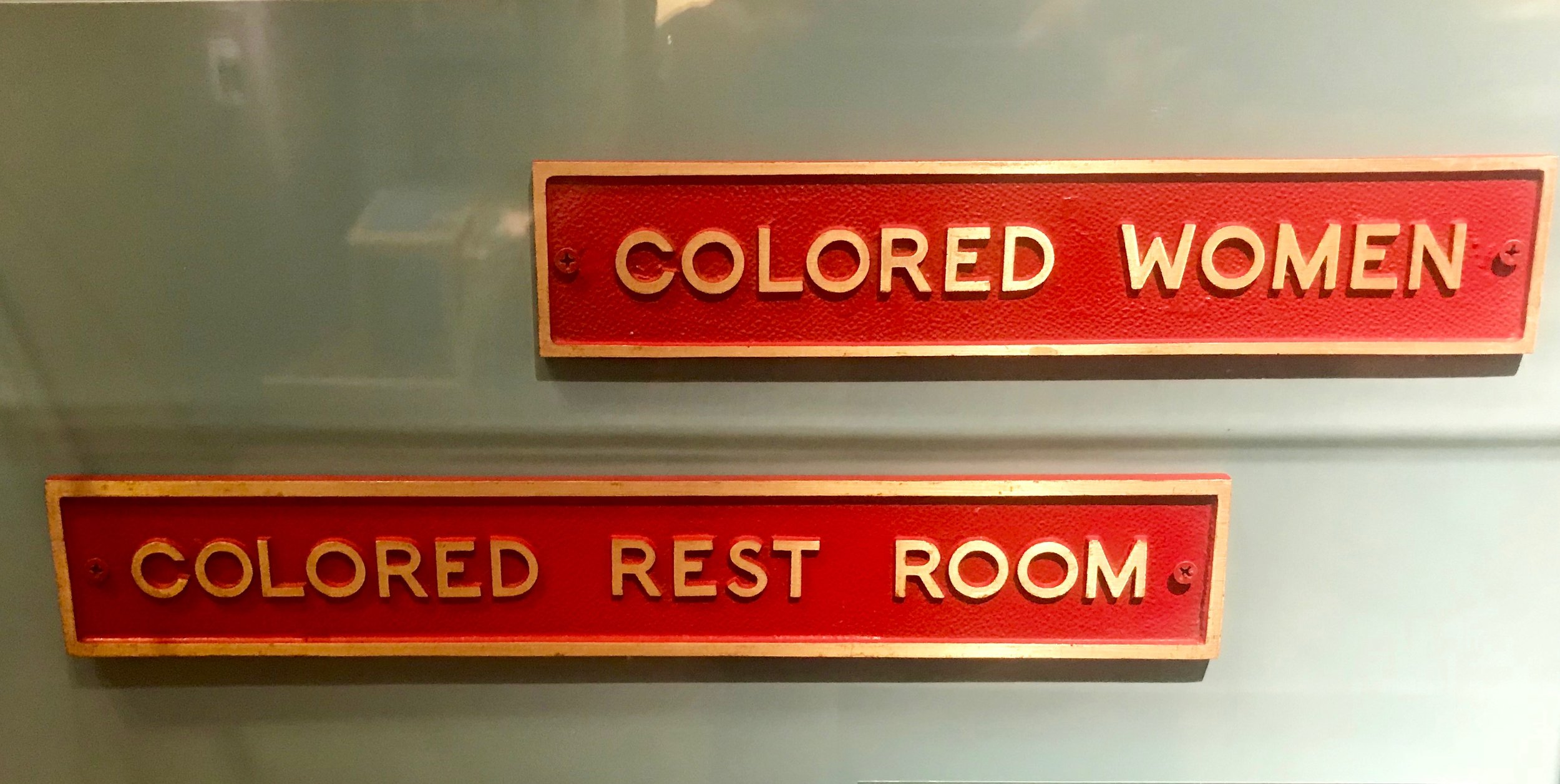Jimmy Carter, Southern man
By Rick Holmes
Jan. 19, 2018
Atlanta - In 1970, Canadian Neil Young told “Southern Man” to “keep your head, don’t forget what your Good Book said,” and some Southern men took offense. Jacksonville rockers Lynyrd Skynyrd responded, in “Sweet Home Alabama,” that “I hope Neil Young will remember a southern man don’t need him around.”
Both songs became hits that are still played decades later. At the time, they exposed a fissure between northern longhairs and southern longhairs. Northerners often assumed that all Southerners were white and all white Southerners were racists. Southerners resented being stereotyped by jerks who knew nothing about them. Faced with injustice in their backyard, they raised the Confederate flag and turned their anger toward northern elites, and not for the first time.
They set off an argument over northern condescension and southern defensiveness that has never really ended.
But amid all the caricatures, some important Southern men were all but erased. They were white men, born into a Jim Crow world, who knew it was wrong and tried to make it better.
Jimmy Carter is one of those Southern men. He grew up on a peanut farm in tiny Plains, Ga., where his best friends were the African-American children of tenant farmers on his father’s land. It bothered him, he says, that his black playmates couldn’t go to his school.
Carter’s father, a pillar of his church and community, was a strict segregationist. But his mother, a nurse, served patients of all races. “Miss Lillian” Carter was broad-minded and idealistic – she joined the Peace Corps at age 68 – and passed those traits on to her oldest son.
When his father died, Carter quit a promising Navy career to return to Plains, where he said he could do the most good. He grew the family peanut business and got involved in local politics just as the Civil Rights movement was polarizing small towns and cities alike. Carter refused to join the White Citizens Council, prompting the segregationists to boycott his peanut business. He got elected chairman of the Sumter County School Board, where he advocated for school integration.
After two terms in the Georgia Senate, Carter ran for governor against Lester Maddox, a segregationist who gained national notoriety for chasing black would-be customers out of his restaurant with an ax handle. Carter lost, but he ran again four years later and won. His first act as governor was to declare that “the time for racial discrimination is over.”
Southern man Jimmy Carter flipped Georgia from a white supremacist state to one where every citizen was equal. He had help from other Georgians, including famous ones - Andrew Young, Atlanta’s first black mayor, Rep. John Lewis, and Martin Luther King – and ones whose acts of principle went mostly unnoticed.
Similar transitions played out in those years in every county courthouse and state capital in the South. Jim Crow was buried, a better South was born, and it was Southern men – black and white – who did most of the heavy lifting.
Carter’s presidency is mostly forgotten now. He won the White House in 1976 as a reaction to Richard Nixon and lost four years later to Ronald Reagan. In office, he was blamed for everything that went wrong and given no credit for things that went right. He was ridiculed on late-night TV and used as a punching bag by his political opponents. That’s what we do to our presidents.
But Carter’s post-presidency, a record 35 years and counting, has been something else. Through the Carter Center, he and Rosalynn have roamed the world, mediating disputes, encouraging democracy and observing elections from Timbuktu to Kathmandu. They’ve been leaders in efforts to remove the stigma from mental illness and to eradicate awful diseases – guinea worm and river blindness – that bring misery to the poorest of the poor in Africa and Central America. He was awarded the Nobel Peace Prize in 2002 not for being the U.S. president, but for his work since then as a global citizen.
At 93, Jimmy Carter still teaches Sunday school in Plains. He still writes a book a year, his main source of income because, unlike other ex-presidents, he takes no money for making speeches or serving on boards. He still pounds nails, building houses for needy families through Habitat for Humanity. And he’s now free of the cancer that, two years ago, had spread to his liver and brain.
Carter’s presidential library here in Atlanta is a low-profile building nestled in a wooded landscape, reflecting the humility of the man it honors. There’s no statue of the former president inside, just the story of a Southern man who never forgot what the Good Book says, and is still making the world a better place.
Rick Holmes can be reached at rick@rickholmes.net. You can follow his journey at www.rickholmes.net. Like him on Facebook at Holmes & Co, on follow him on Twitter @HolmesAndCo.



